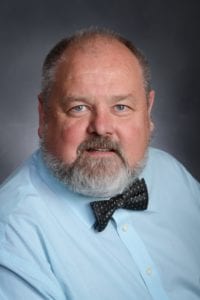
Director of Policy and Education, Office of Chief Scientific Officer
Geisinger Health System
ASHG: What non-scientific skills (communication, artistry, athleticism, etc.) are important for your job? Were any of these skills unexpected assets for you?
Mr. Faucett: Good listening and communication skills are important in developing education tools and creating new policy. You need to hear both the message people talk about and the ones they are more quiet about, but usually will share if you listen carefully. Building collaborations and looking for common ground are very important. You may not always get consensus but if you can focus on common goals, you can make progress.
I developed these skills as part of my training as a genetic counselor. I was very surprised how important and critical they are for my current role.
ASHG: What do you think the future holds for the field of genetics?
Mr. Faucett: I think the future for genetics is great, but it will be different. As genetics rolls into mainstream research and medicine, we need to realize that genetics cannot be special and must become part of the process. I think most people will have their genomes sequenced and we will learn together what they mean.
We need to develop better listening skills and ask our patients and research participants what they are interested in and what would help them the most. Genetic information will only be useful if it meets the needs of the public and the public is actively engaged in research and implementation.
ASHG: Can you describe your transition from trainee to working professional? How did you land your first “real” job?
Mr. Faucett: My first real professional job was as a clinical genetic counselor at Baylor College of Medicine in Houston. Networking early in my career and volunteering to participate in workgroups allowed me to meet people and allowed them to know me better.
Also, my volunteer experience on the NSGC and ABGC Board of Directors were critical for professional development and network development. My clinical experience was very valuable when I decided to go into public health, research, and education.
When I applied for my fellowship at the Centers for Disease Control and Prevention, there were many people who knew me and were willing to recommend me for the position. Networking can be almost as important as your formal training.
Want more interviews? Join the ASHG Trainee Forum to keep up with new ones!
